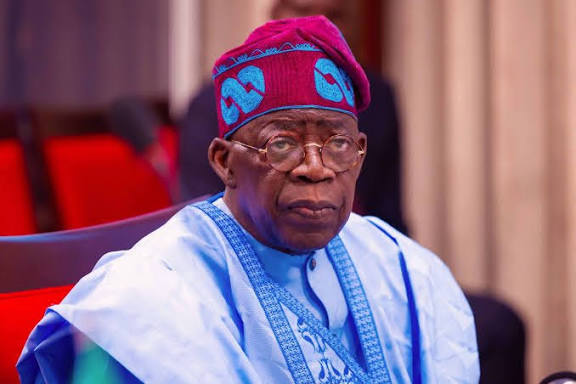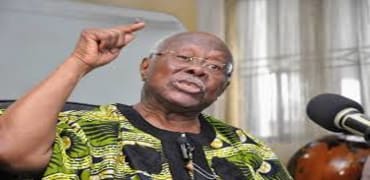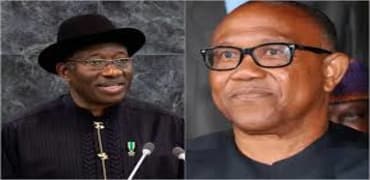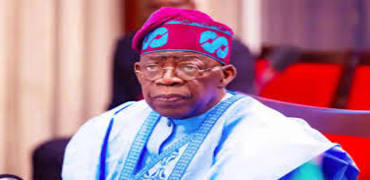COMMANDING FROM THE FRONT : PRESIDENT TINUBU IS STRENGTHENING NIGERIA’S NATIONAL SECURITY ARCHITECTURE By Sunday Dare
COMMANDING FROM THE FRONT : PRESIDENT TINUBU IS STRENGTHENING NIGERIA’S NATIONAL SECURITY ARCHITECTURE
By Sunday Dare
Moments of renewal in the life of every nation are never far away. Like changes they are never out the door. Such moments that call for renewal, are times — when leadership must be refreshed, strategies recalibrated, and institutions strengthened to meet new realities. They are times when decisive and timely actions are needed.
In Nigeria's military annals, Friday October 24th was one such defining moments. Strategy matured into stealth and tactics.
President Bola Ahmed Tinubu, GCFR, approved changes in the hierarchy of our Armed Forces to further strengthen Nigeria’s national security architecture. This decision is neither abrupt nor cosmetic. It is part of a deliberate, forward-looking plan to reenergize the military, sustain ongoing operations, and infuse new strategic thinking into the nation’s defence establishment.
Under the President’s directive, General Olufemi Oluyede has been appointed Chief of Defence Staff, bringing to the role decades of experience in command and operations.
New Profiles in Dedication
Major-General W. Shaibu, of the 41st Regular Course of the Nigerian Defence Academy from Kogi State, assumes duty as Chief of Army Staff..
Gen. Shaibu’s appointment as Chief of Army Staff is both fitting and symbolic. A seasoned commander who has served at the frontlines of the counterinsurgency campaign in the North-East, he brings first-hand knowledge of the terrain, the threat, and the human cost of conflict.
As former Theatre Commander of Operation Hadin Kai and General Officer Commanding 7 Division, Maimalari Barracks, Maiduguri, he presided over one of the most successful periods of the counter-terrorism effort. Under his watch, thousands of insurgents, along with their families, surrendered to the Nigerian Army. Many of them are now undergoing rehabilitation and reintegration under government-supervised programmes.
Shaibu understands the nuances and complexities of the North-East crisis — its operational, social, and humanitarian dimensions. His elevation is both a reward for service and an investment in experience.
Air Vice Marshal Kelvin Sunday Aneke, wildly popular in Air Force circles for his daring operational efficiency, becomes the 23rd Chief of Air Staff.
AVM Aneke represents a remarkable story of service and legacy. Born on a base in Makurdi to an airman who rose to the peak of the enlisted ranks, Aneke now stands at the summit of the officer corps — a symbol of discipline, perseverance, and generational continuity.
Before his appointment, he commanded the Mobility Command of the Nigerian Air Force in Yenagoa, where he oversaw critical logistics, tactical airlift, and combat support operations. His professionalism and quiet resolve have earned him deep respect across ranks. Aneke’s rise — from a base-born child to Chief of Air Staff — mirrors the possibilities of the Nigerian dream and the values President Tinubu seeks to institutionalize across public service.
Rear Admiral Idi Abbas, from Kano State, who has served as Flag Officer Commanding Central Naval Command, Chief of Operations, and Chief of Naval Safety and Standards, is now the Chief of Naval Staff
Idi Abbas brings similar depth to the Navy. A thoroughbred professional and reform-minded officer, he has spent his career combating the threats that endanger Nigeria’s maritime domain and economic lifelines.
Having led the Central Naval Command and served as Chief of Operations and Chief of Naval Safety and Standards, he understands both the tactical demands of naval warfare and the strategic importance of securing Nigeria’s blue economy. His appointment signals the President’s determination to confront oil theft and maritime insecurity with renewed intensity and purpose.
Renewing the National Security Focus
These appointments come at a time when Nigeria faces multifaceted threats — from insurgency and banditry to organized crime and economic sabotage. The President’s objective is clear: to re-energize ongoing military operations across all regions and sustain the momentum of recent gains.
In the North-East, Operation Hadin Kai continues to dismantle terrorist enclaves and stabilize liberated territories. In the North-West, Operation Hadarin Daji is intensifying its campaign against banditry and kidnapping.
In the North-Central, Operations Safe Haven and Whirl Stroke are addressing the persistent herder–farmer crises and restoring calm to previously troubled communities. In the South-South, Operation Delta Safe remains a bulwark against pipeline vandalism, oil theft, and environmental sabotage.
Meanwhile, in the South-East, Operation Udo Ka continues to restore peace through intelligence-driven and community-based engagements. Each of these operations represents a vital strand in the web of national security. Together, they demonstrate that the Tinubu administration’s approach is comprehensive — uniting kinetic action with intelligence, diplomacy, and socio-economic measures to secure every region of the country.
Continuity and Confidence
The retention of Major-General Undiendeye as Chief of Defence Intelligence provides a necessary balance of continuity and institutional memory within the defence establishment. Intelligence coordination remains the backbone of modern military operations, and preserving stability in this area is both wise and strategic.
This blend of continuity and innovation is deliberate — ensuring that the Armed Forces do not lose operational rhythm while gaining new drive.
The President’s Vision
President Tinubu’s leadership philosophy remains anchored in decisiveness, accountability, and reform. He understands that security is not static; it demands agility, innovation, and renewal.
In every decision — from economic reforms to governance restructuring — the President has shown an unwavering resolve to rebuild Nigeria’s institutions on the foundations of efficiency, accountability, and results. His actions send a clear message: Nigeria will defend its democracy, safeguard its sovereignty, and project stability across the region.
A Call to Duty
To the new service chiefs, the nation looks to you with confidence. Lead with courage, serve with honour, and stay anchored in the values of discipline and patriotism.
To the officers and men of the Nigerian Armed Forces, this is a call to unity and duty. Give your unalloyed support to your new commanders, for your cohesion is the strength of the nation. And to our fellow citizens, let us stand behind our Armed Forces. Their success is the shield that protects our collective peace and progress.
Conclusion
This moment of renewal is not about replacing individuals; it is about strengthening institutions. It is about reaffirming our national commitment to safety, stability, and sovereignty.
In reconstituting the military leadership, President Tinubu has demonstrated once again that leadership is about action, not rhetoric — about vision, not vanity — about courage, not convenience.
May God bless the Nigerian Armed Forces, and may God bless the Federal Republic of Nigeria.

















